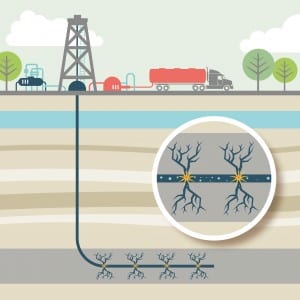There is an infinite number of ways miscommunication can undermine a business. It’s a no-brainer. However, last week’s London Business School Energy Forum reveals that lack of communication can undermine the whole sector. In this case, the European energy sector. In the UK – of all places – the lights are predicted to go out in 2016. What does that have to do with communications, you’ll ask?
Let’s see. For too long the EU energy companies, regulators and academia have been operating in a bit of a vacuum, with their own targets to hit and a variety of stakeholders to consider. The elephant in the room – the real cost and effects of renewable energy and carbon reduction targets for Europe – has been left hanging in the air for too long. Indeed – the regulators kept regulating – and utilities “voted” with their money.
Until a few months that is – when it became increasingly apparent that the disconnect between the two has made any new investment in the UK power plants absolutely unprofitable. A number of indebted European utilities have abandoned their UK nuclear power plant projects altogether. However, it’s not until tight credit and the proximity of blackouts that businesses and regulators have been pushed to debate the matter more seriously. This resulted in the UK government’s decision on 9 May 2012 to introduce measures to help utilities attract as much as £60bn ($97 billion) in finance required to build nuclear in the UK.
It still doesn’t mean we have a solution. According to the LBS Energy Forum participants, there are still a number of issues that need to be actively communicated, understood and considered by all parties involved in the energy sector. There are a number of significant operational challenges remaining for the sector that inevitably turn into communications challenges. Communications challenges require communications solutions. Therefore, we need to be aware of these in case our energy clients will ask for our support or advice:
- Renewables are almost as expensive as concept cars. Capital investment required for renewables such as wind is much greater than what’s been accounted for – in the UK it “would cost roughly the same as rebuilding entire energy industry from scratch” – around £100bn ($161 billion) to be precise.
- Just as is the case with concept cars, the renewable technology is still not self-sustaining and viable. The problem is that investment and significant improvements of renewable technology is subject to a “waiting game”. Viable renewable technology does not yet exist. The question is: Who’s going to invest in it now to be disadvantaged later?
- It’s unprofitable to build new European power plants – no matter what kind they are. Regulatory changes/issues such as carbon price, which is currently set at unsustainable level for coal and gas-fired plants in Europe. The price of technology required for environmentally friendly sources of energy (and yes, hard to believe – nuclear is one of them!) is just too high. With too much debt on their books and dividends to pay, European utilities just can’t afford to gamble!
- EU Energy prices are expected to fall significantly as the proportion of wind power in the system increases. Both industry and academia agree with this assumption and have run multiple scenarios to prove it. It’s pretty much what the shale gas influx did to the US gas prices. Counter intuitively, there is nothing good in cheap wind energy that we are currently unable to store. Wind doesn’t blow every day, and has to be backed up by “proper” reliable heat power generation. It isn’t cheap to build and maintain just as back-up! The only viable option is to have more interconnectors in Europe, as well as storage and integration with other sectors (heating, gas, transport).
- There needs to be more communication at government level. Over a year ago, EU energy and environmental legislation was passed in Brussels that did not fully take into consideration some of the individual countries’ energy policies and issues, such as UK’s Energy Market Reform (EMR). Or the level of distortion that new regulation or influx of renewable power can do to the energy sector.
Please feel free to get in touch if you have any questions or comments on [email protected]
Paddy Blewer and Leah Selouk in London have also contributed to the article.


